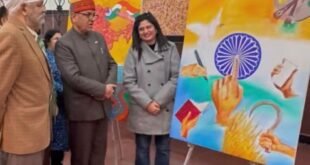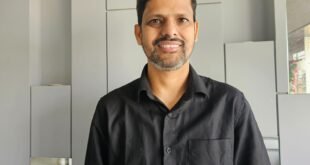A War That Refused to End Quickly
When Russia launched its “special military operation” against Ukraine in early 2022, many expected the conflict to end within days. On paper, the balance of power seemed overwhelming: a nuclear-armed superpower under Vladimir Putin against a smaller nation led by Volodymyr Zelensky, a former comedian who had only recently entered politics.
Yet, three years later, the war continues with no sign of resolution. Europe has been shaken by its bloodiest conflict since the Second World War. Peace efforts, including mediation attempts by Donald Trump, have failed. The European Union remains firmly behind Ukraine, while Russia has grown increasingly isolated. Amid ongoing battles, drones, and missile strikes, a wave of books has emerged, each attempting to make sense of the war.
Yaroslav Trofimov: Voices From the Ground
Among the most widely praised works is Our Enemies Will Vanish: The Russian Invasion and Ukraine’s War of Independence by Yaroslav Trofimov, chief foreign-affairs correspondent for The Wall Street Journal. Trofimov, who was in Kyiv when the invasion began, offers a vivid 400-page account that blends battlefield coverage with the experiences of everyday Ukrainians.
What sets his work apart is its focus on human resilience. While his sympathies clearly lie with his homeland he was born in Kyiv Trofimov strives for balance, giving readers both the horror and heroism of Ukraine’s survival. Written with the pace of a novel, the book reads as much like storytelling as it does journalism.
Luke Harding: Tracing the Bigger Picture
In contrast, Luke Harding of The Guardian brings a broader, analytical approach in Invasion: The Inside Story of Russia’s Bloody War and Ukraine’s Fight for Survival. Having witnessed the Russian tanks cross into Ukraine, Harding documents not only the fighting itself but also the historical and cultural roots of the confrontation.
One of his most compelling themes is the leadership contrast. Zelensky is portrayed as pragmatic, human, and grounded, while Putin emerges as a leader detached from reality living in what Harding describes as “a strange and unreachable realm.” While less emotionally gripping than Trofimov’s work, Harding’s narrative provides context for readers seeking to understand the strategic dimensions of the war.
Serhii Plokhy: History’s Long Shadow
For those wanting depth rather than immediacy, Serhii Plokhy, Harvard professor of Ukrainian history, provides essential context in The Russo-Ukrainian War: The Return of History. Known for his acclaimed works on Eastern Europe, Plokhy frames the conflict not merely as Putin’s political maneuver but as the continuation of centuries-old disputes over Ukraine’s sovereignty.
Although more academic in style, the book’s strength lies in showing how Russian narratives about Ukraine as part of its own identity have endured from the Tsarist period through the Soviet Union and into the present day.
Mikhail Zygar: Culture and Myth-Making
Mikhail Zygar, a Russian journalist and author of the bestseller All the Kremlin’s Men, approaches the subject differently in War and Punishment: The Story of Russian Oppression and Ukrainian Resistance. Zygar mixes cultural references, political history, and personal portraits of Putin and Zelensky to illustrate how myths and stories have shaped Russian views of Ukraine.
Unlike Plokhy’s dense academic tone, Zygar writes in a style that is easier for general readers, weaving in anecdotes and references from Russian literature alongside modern-day politics.
Why These Narratives Matter
Together, these works reveal different dimensions of the war. Trofimov humanizes it, Harding contextualizes it, Plokhy historicizes it, and Zygar explores its cultural myths. Each book contributes to building a fuller picture of a conflict that has defied predictions, reshaped Europe, and tested global alliances.
As the battles continue and diplomacy fails to deliver peace, these books serve not just as records of the present but as resources for understanding how history will remember the confrontation between Vladimir Putin and Volodymyr Zelensky.
 Digital Scoop India Official Platform of Digital Scoop India Featuring Latest & Best News #Articles #Bytes #Entertainment #DigitalScoopMagazine
Digital Scoop India Official Platform of Digital Scoop India Featuring Latest & Best News #Articles #Bytes #Entertainment #DigitalScoopMagazine



